If you've ever found yourself in a position to report wrongdoing at work, you know how daunting it can be. Whistleblower protection is a crucial topic that empowers individuals to speak out without fear of retaliation, ensuring that their voices are heard and respected. Whether you're navigating the complexities of workplace ethics or seeking legal guidance, you'll find that understanding your rights is essential. Join us as we delve deeper into the nuances of whistleblower protection and how you can safeguard your interestsâread on to explore more!
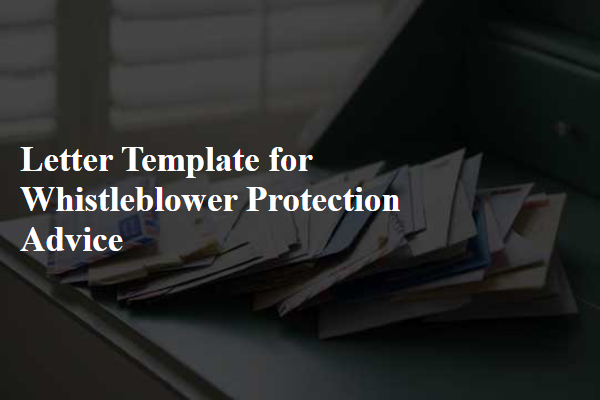
Confidentiality Assurance
Whistleblower protection laws ensure confidentiality for individuals who report misconduct in organizations, like the Whistleblower Protection Act in the United States. This legislation safeguards whistleblowers (individuals who disclose information about illegal or unethical practices) from retaliation, such as job termination or harassment, by their employers. Additionally, many organizations have internal policies that emphasize anonymity, allowing reporters to disclose sensitive information without fear of exposure. Confidentiality practices may include secure communication channels, restricted access to reports, and protocols for safeguarding personal information. Understanding these protections is essential for anyone considering reporting wrongdoing, ensuring a safe process for upholding ethical standards in workplaces and communities.
Legal Rights and Protections
Whistleblower protection laws provide essential safeguards for individuals reporting illegal or unethical practices within organizations. Under federal laws, such as the Whistleblower Protection Act of 1989, employees who disclose government misconduct are protected from retaliation, including wrongful termination or discrimination. In many states, additional statutes enhance these protections at the local level. Reporting channels may include designated government agencies or internal company hotlines, ensuring anonymity in many cases. Legal representation, particularly from attorneys experienced in employment law, can assist whistleblowers in understanding their rights and navigating the complexities of the reporting process. Documentation of the misconduct and any retaliatory actions taken against the whistleblower is crucial in pursuing a successful claim for protection under these laws.
Reporting Procedure
Whistleblower protection procedures in organizations are critical for safeguarding individuals who report misconduct, fraud, or abuse. Typically, reporting procedures involve a designated hotline or online platform, ensuring anonymity and confidentiality for the whistleblower. Each organization, such as the federal government or private corporations, may offer specific guidelines for reporting that comply with legal frameworks like the Whistleblower Protection Act in the United States. Following proper procedures, employees (often referred to as complainants) must provide detailed accounts of the suspected wrongdoing, which may include financial discrepancies, safety violations, or ethical concerns. After submission, responsible departments, like Human Resources or Ethics Compliance, begin investigations while safeguarding the whistleblower's identity and protecting against retaliation. Transparent communication is essential, with updates offered throughout the investigation process to maintain trust and support for the whistleblower.
Non-Retaliation Policy
Whistleblower protection laws aim to safeguard individuals who report misconduct, fraud, or violations within organizations. Non-retaliation policies are crucial in ensuring that whistleblowers, whether employees or contract workers, feel secure in coming forward without fear of punishment or discrimination. These policies typically cover a range of protective measures, including confidentiality guarantees to maintain the whistleblower's anonymity and assurances against any adverse actions such as dismissal, demotion, or harassment. Effective non-retaliation policies are often outlined in organizational handbooks, emphasizing the importance of creating a safe reporting environment for all employees. Compliance with these policies not only fosters a culture of transparency and integrity but also aligns organizations with regulatory frameworks, such as the Whistleblower Protection Act, established to promote ethical workplace practices.
Support Resources and Assistance
Whistleblower protection is crucial for ensuring the safety and rights of individuals who expose wrongdoing within organizations, such as government agencies or corporations. Various support resources provide assistance, including the Occupational Safety and Health Administration (OSHA), which offers guidance on filing complaints under the Whistleblower Protection Act. Legal aid organizations, such as the National Whistleblower Center, offer resources and legal representation for whistleblowers facing retaliation. Additionally, state-specific protection laws exist, varying in scope and coverage, which can be accessed through local government websites or legal clinics. Whistleblowers can also seek counseling services from nonprofit organizations dedicated to their support, fostering a safe environment for individuals reporting misconduct.

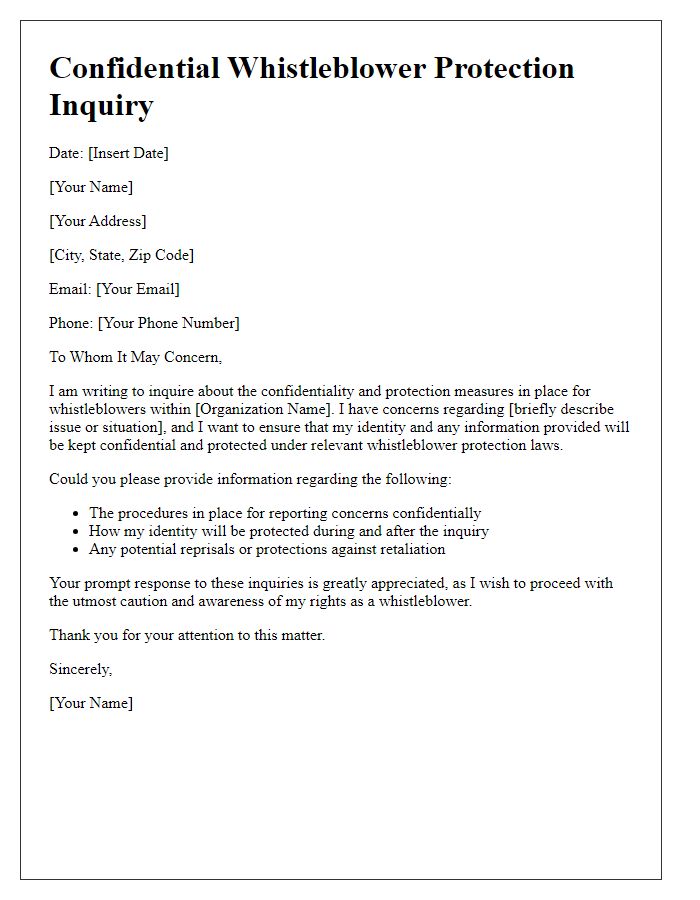
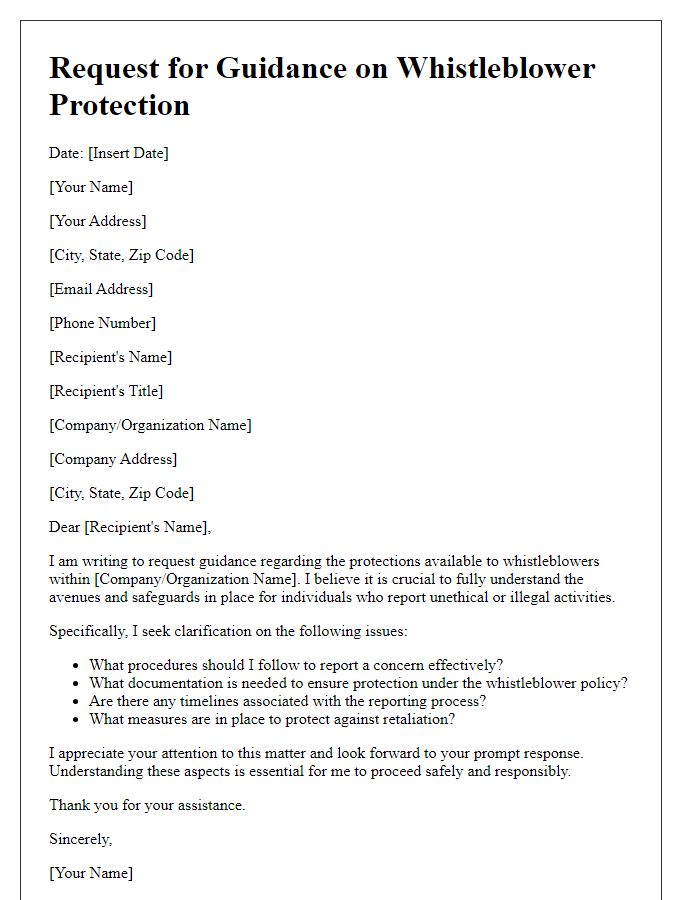
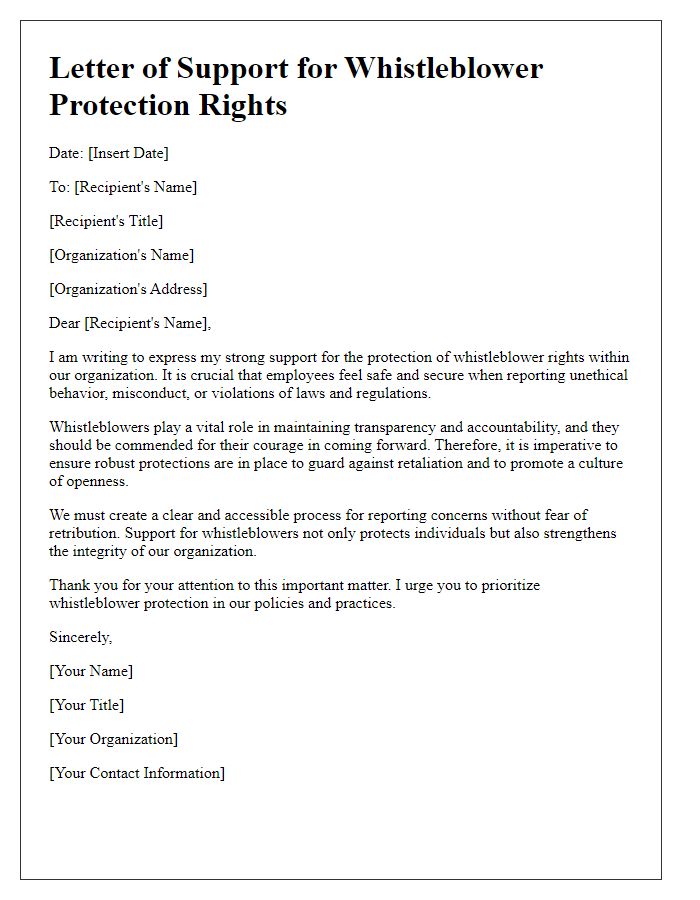
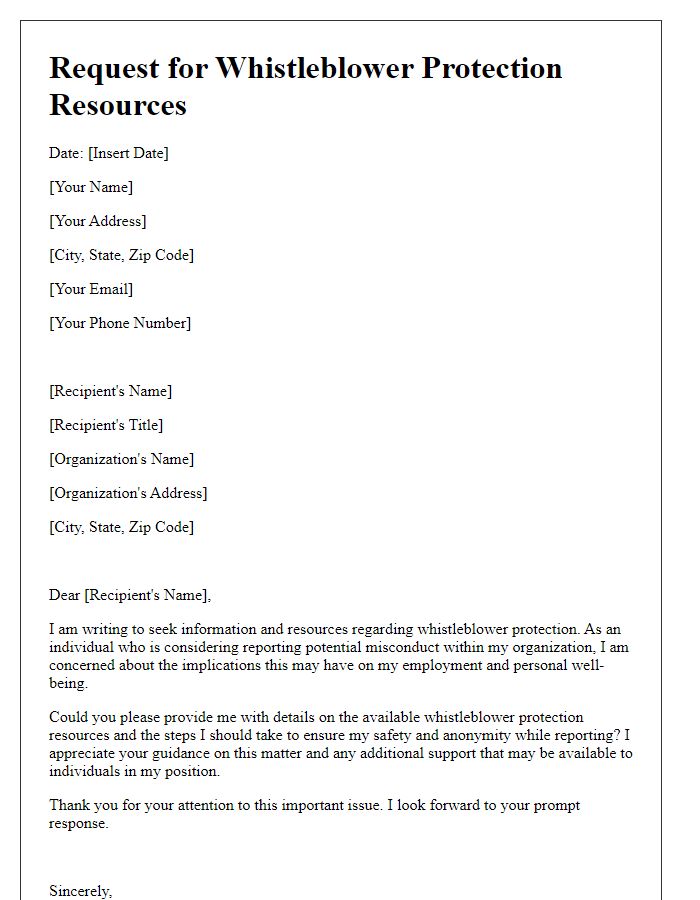
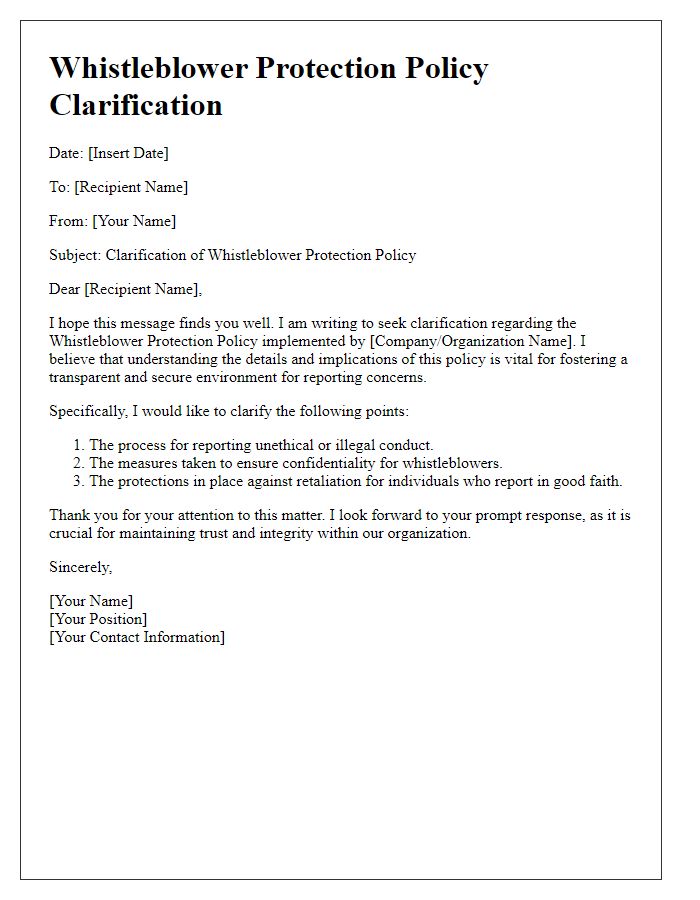
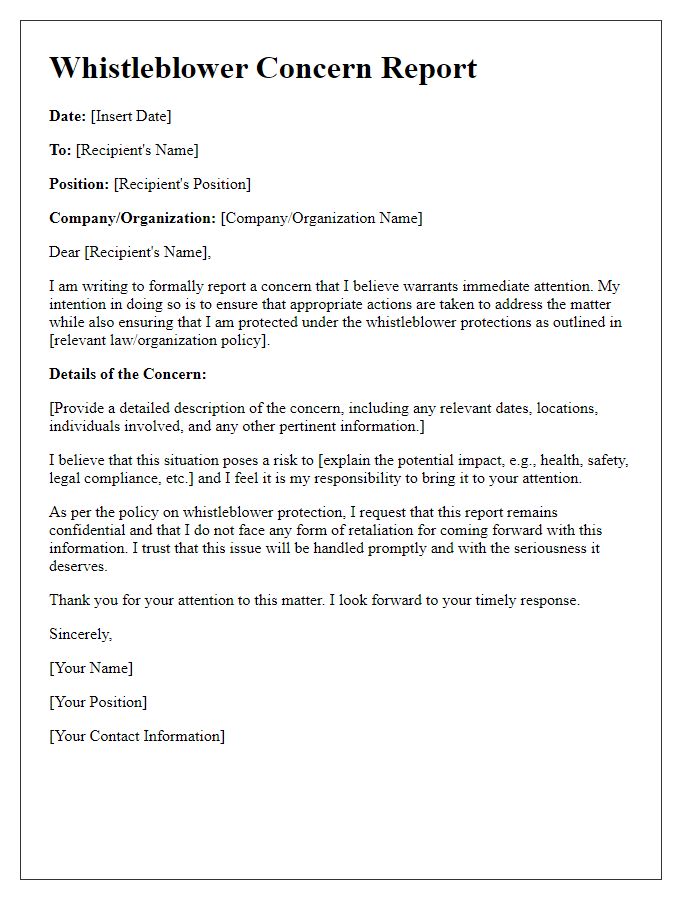
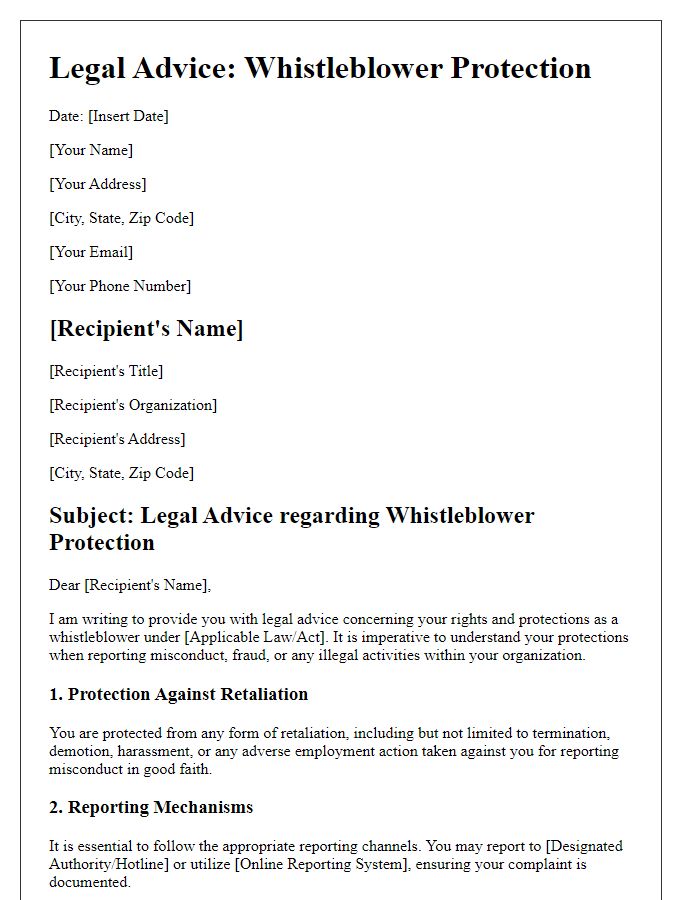
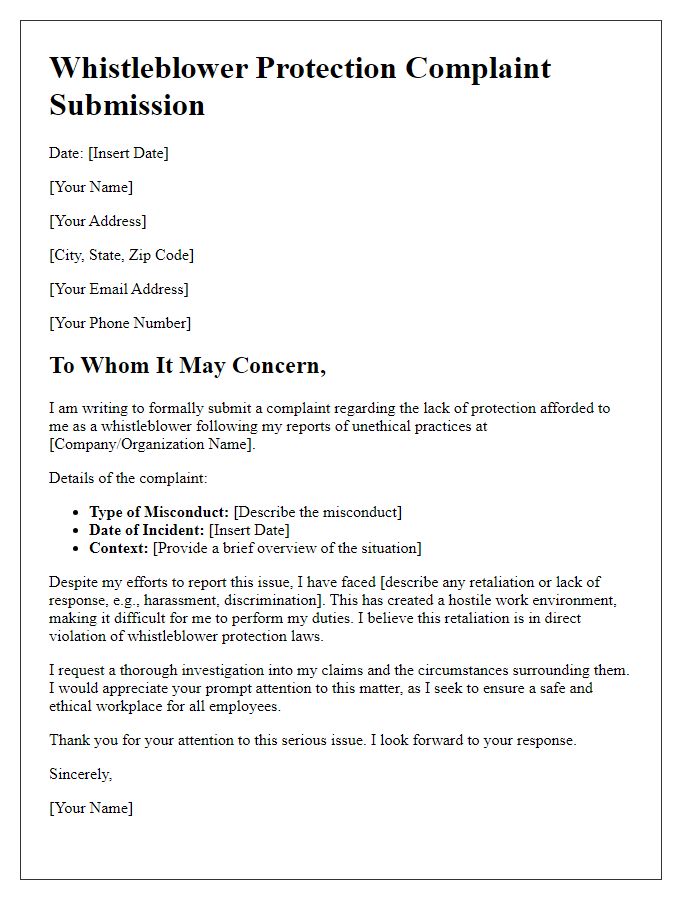
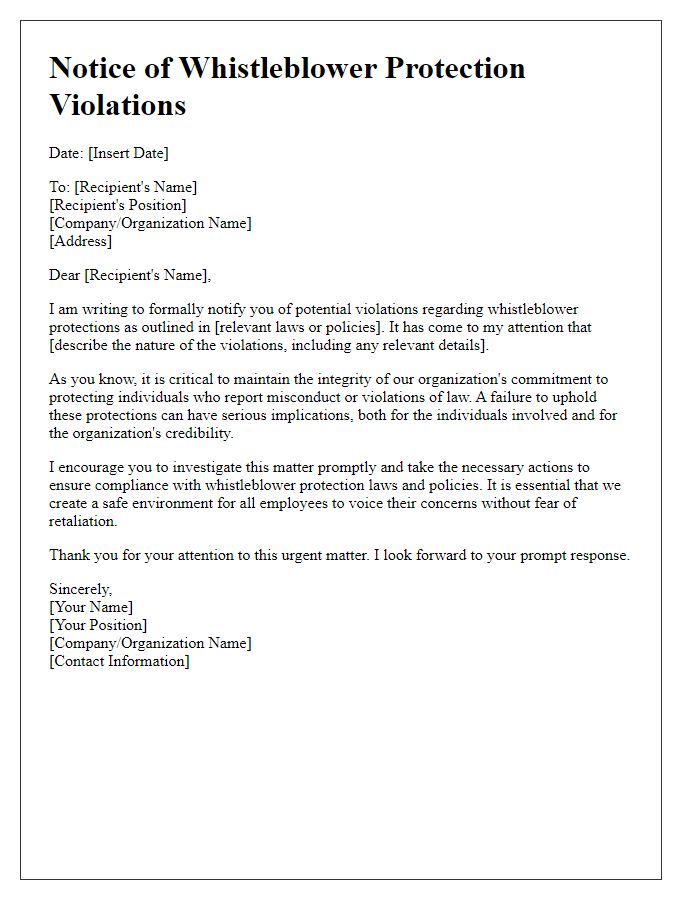
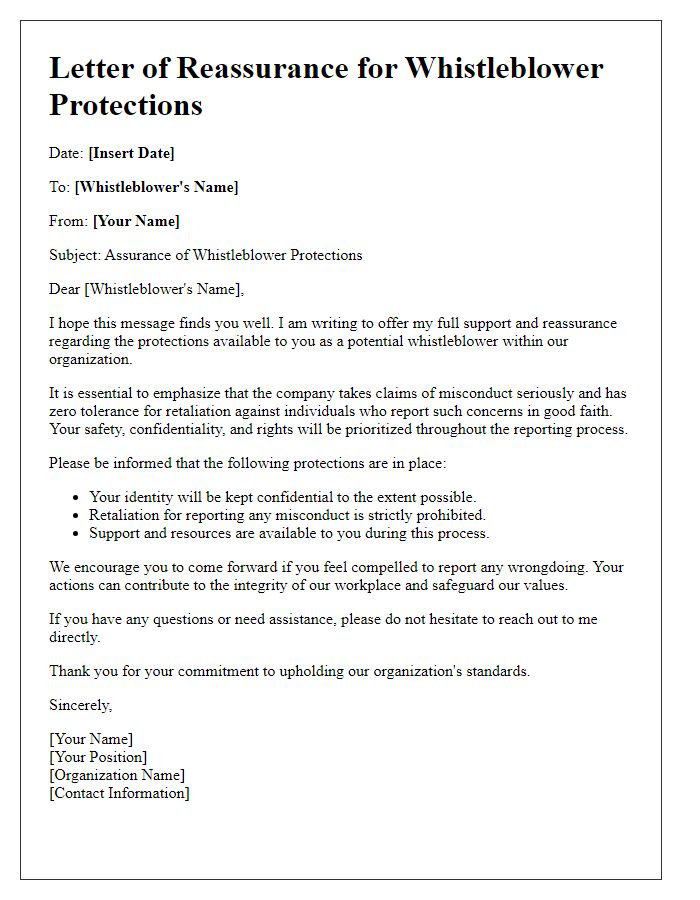

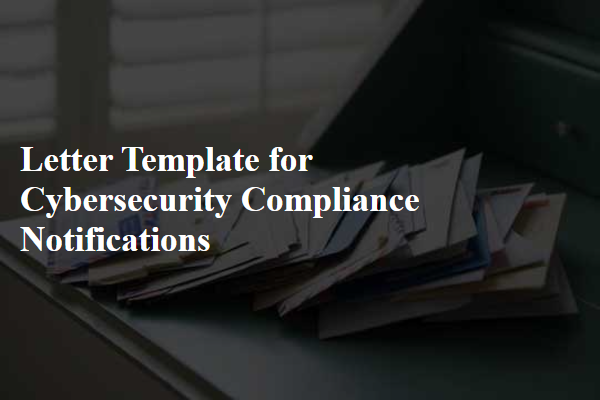
Comments